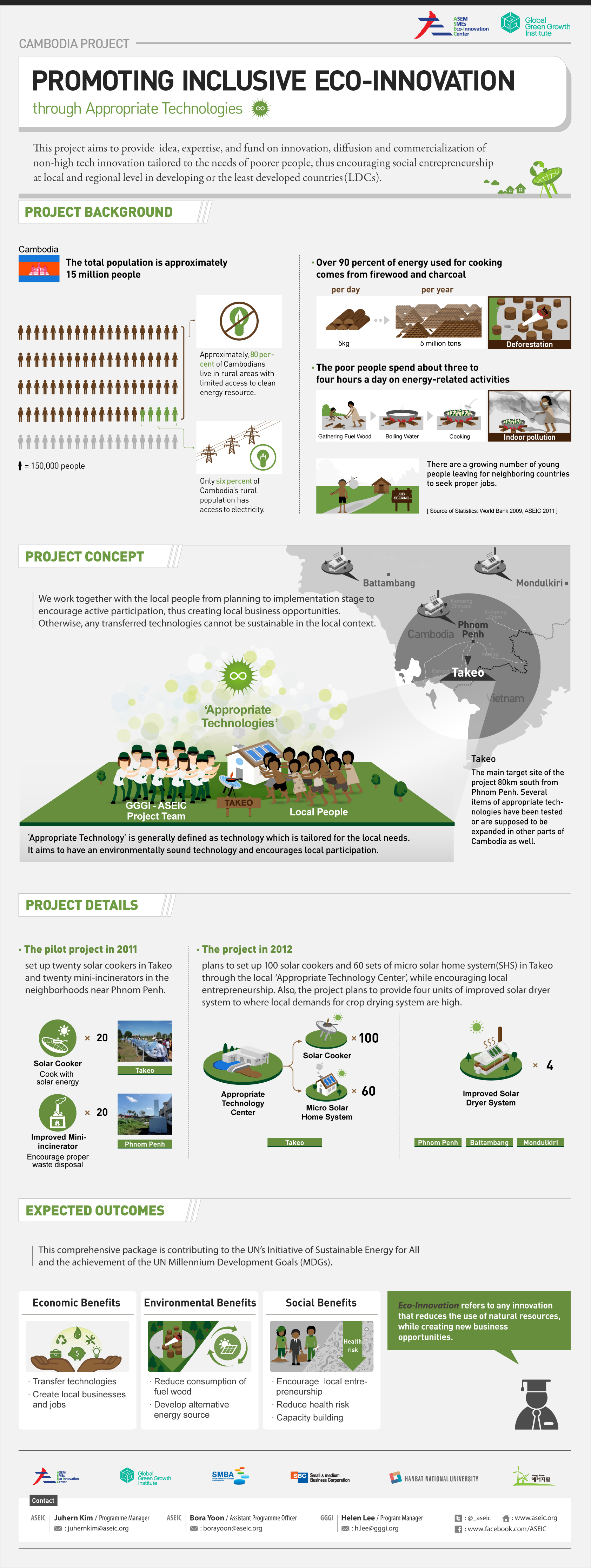
|
Promoting Inclusive Eco-Innovation through Appropriate Technologies 24 Aug 2012
|
|
|---|---|
|
요구사항정의(고객관리).docxPromoting_Inclusive_Eco-Innovation.jpg'11 ASEM Eco-Innovation Consulting Guideline_Thailand_TPS.pdf'11 ASEM Eco-Innovation Consulting Guideline_Thailand_TMC.pdf
ASEIC would like to show a brand-new information graphic (otherwise known as infographic), regarding the ASEIC’s eco-innovation project in Cambodia. This infographic gives readers a snapshot of the ASEIC’s two-year long efforts in Takeo, Cambodia.
  In order to find truly necessary and suitable technologies for the recipient communities, a survey was conducted among 97 households in the Takeo province. Based on the findings that almost ¾ of them still rely on firewood for cooking, the ASEM SMEs Eco-Innovation Center (ASEIC), an organization that builds eco-innovation bridges between small- and medium-enterprises in Asia and Europe, set up a project in which locals were trained on how to manufacture and maintain solar cookers, micro solar home systems(SHS), improved dryers, etc. The project was sponsored by the Small and Medium Business Administration (SMBA), Republic of Korea and Korean Small and Medium Corporation (SBC) and directly linked to the country program in Cambodia of the Global Green Growth Institute (GGGI). The final goal of this bottom-up approached venture is to encourage local entrepreneurs to make real business opportunities with shared technologies and education.
|